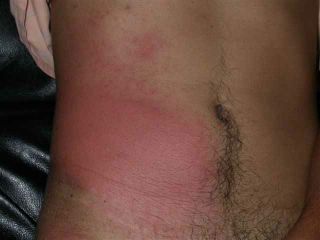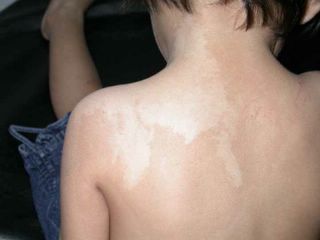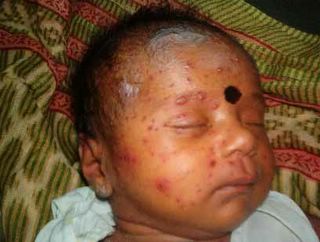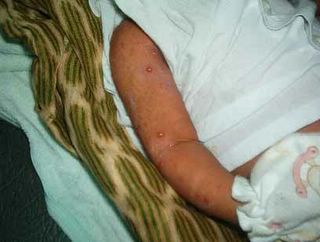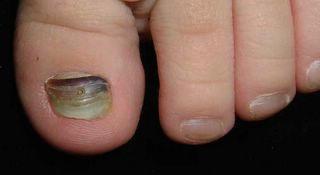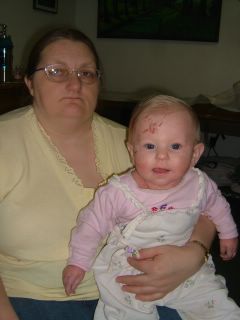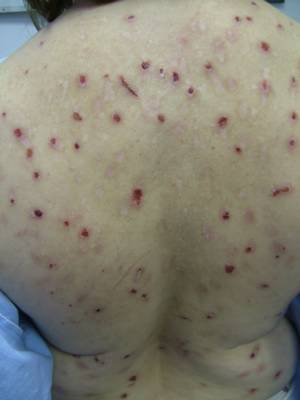OFFICE VISIT
MARCH 07, 2005
Sam D. was seen today on a same day basis. He has a few day's history of a tender, erythematous area on the right lower leg. This is at the site of a twine ankle bracelet that he had been wearing for two years. He feels a bit run down although he has not had a fever.
EXAMINATION: The examination shows an area of localized erythema and mild central scaling on the left lower leg just proximal to the ankle medially. It has a sharp margin. KOH prep was negative. There is definite heat at this site. The regional inguinal lymph nodes are enlarged.
IMPRESSION: Probable cellulitis. Doubt contact. Doubt tinea. Doubt phlebitis.
PLAN:
1. Warm compresses.
2. Dicloxacillin 500 mg q.i.d.
3. Return for follow-up in four days.
Follow-up visit March 11
S: Patient feels a bit better energy wise, but leg still red and tender.
He hasn't been able to rest - has classes, lots of responsibilities. Has not been able to do warm compresses more than twice in past 5 days.
No systemic symptoms.
O: No marked change in plaque
A: I still favor a diagnosis of cellulitis.
P: Post on ANAK VGRD for suggestions. How long should this take to resolve?
Clinically, this does not look like erythema nodosum. It began after prolonged microtrauma from a twine ankle bracelet.
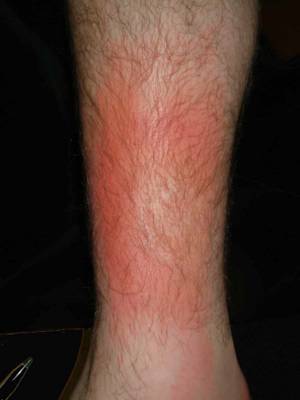
20 yo man with painful plaque




